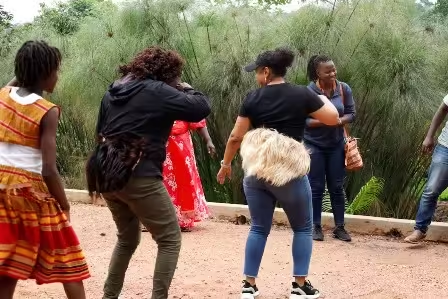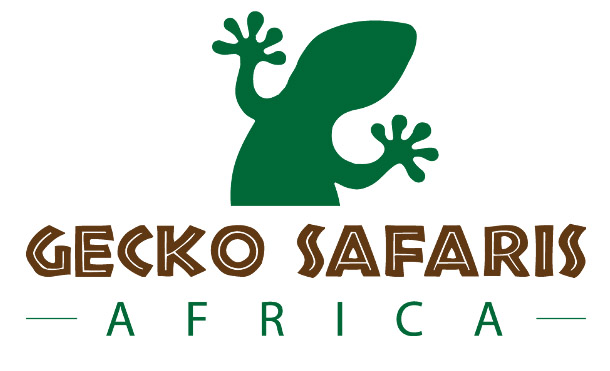EWAFFE CULTURAL VILLAGE.
Ewaffe Cultural Village is the ideal destination to discover true African traditions and cultures; it is located in Uganda, near the country’s capital.
This is not like many other cultural institutions, where a few objects illustrating African traditions and civilizations are merely displayed for visitors to see.
Ewaffe Cultural Village is a large project well-established in rural Uganda that allows visitors to experience local living in an old African tradition society and learn about the Baganda people’s secrets.
When you arrive at Ewaffe Cultural Village, the enthusiastic team dressed in Baganda traditional garb greets you with a traditional Kiganda dance performance and banana juice served in a traditional gourd/calabash, sipped with a bamboo.
Location of the Ewaffe Cultural Village.
The Ewaffe Cultural Village is located on Kayunga Road in Naggalama, Mukono District.
This is only an hour’s drive from Kampala, making it an ideal destination for a one-day cultural and village trip.
Kampala
The journey from Kampala to Naggalama takes you through Ntinda, Najjera, Bulindo, Kitukutwe, Gayaza, and the Kayunga Road.
It takes approximately 1.5 hours to get there from Jinja.
This excellent location also makes it an easy addition to a variety of short outings in this direction, including a day trip to the Nile’s source and Jinja, as well as bird watching.
Activities at Ewaffe Cultural Village.
Traditional Kiganda dance performance.
The first activity you’ll see when you arrive at the cultural village is a traditional Kiganda dance performance.
You can join the group and take your first Kiganda dancing instruction, or simply entertain yourself.
Tour of a medicinal herb garden.
Discover the many herbs and plants that the traditional civilization employed for a variety of purposes, including healing ailments, bringing good fortune, improving sexual life, enhancing bodily performance, and enhancing food and tea spices, by taking the garden tour.
Aloe Vera (kigaji), Tameric (kinzali), Lemon grass (kisubi), Cactus (Kawumpuli), Pomegranate (koma mawanga), Shame plant (muko wewumbe), spear mint, underseed plant (kakumirizi), Sasame (olutungotungo), Alligator pepper (etunguulu), Lion ear (kifumufumu), Ginger bush (Kyewamala), Periwinkle (kamuli ko kumalalo), Bottle grass (nyambala butonya), and so on are some of the herbs.
Class on cooking.
Discover how to cook a banana (matooke) the Kiganda manner, which begins with peeling it and then wrapping it in banana leaves before adding it to a skillet.
Preparing the regional specialty known as “Luwombo,” a dish meant for special occasions, is another cooking lesson.
Making local brew (tonto) and banana juice.
Squeeze the ripe banana and poke grass with your hands to learn the delicate art of creating banana juice.
The native beverage known as “tonto” is made from banana juice.
This is accomplished by adding sorghum flour to the juice and letting it ferment for roughly three days.
Weaving baskets.
While men went to work to support their families, women in traditional African households stayed at home to take care of the house.
Weaving baskets was one of the ways mothers (women) spent their leisure time at home; this is still real up until now.
You can sit down with the women (mothers) at Ewaffe Cultural Hamlet and learn how to weave using the local raw materials that you will gather from the hamlet.
Making bark cloth.
Before Europeans brought clothing into African traditional civilization, Africans used bark fabric, which is produced from tree bark.
In certain societies, bark fabric is still utilized for customary and cultural purposes today.
You will be guided through the entire bark cloth-making process at Ewaffe Cultural Village, starting with the tree’s bark harvest.
Fishing.
There are many fish in Lake Ewaffe, a sizable pond in the Ewaffe Cultural Village.
You can enjoy catching fish for fun by using a fishing line that is linked to a stick (rod) on one end and has a hook on the other end where you can place your bait or worm.
A knowledgeable local fisherman is on hand to teach you how to fish.
DNA testing in the old-fashioned manner.
It was determined whether a child belonged to the man the mother claimed to be the father using a basket, water, and the baby’s umbilical chord.
This was something that the man’s family always carried.
In African traditional society, testing a child’s DNA to establish paternity is a highly fascinating ritual that no science can explain.
Water is being drawn from the well.
Similar to how African traditional civilization used to do it, water is collected in clay pots and carried on the head. For those who have never done it, this rural-style activity is thrilling.
Lunch in Luwombo.
Traditionally, guests are given a delectable native food called “luwombo,” which offers a unique experience.
Sweet potato, matooke (banana), chicken, and groundnut sauce are among the delectable dishes.





